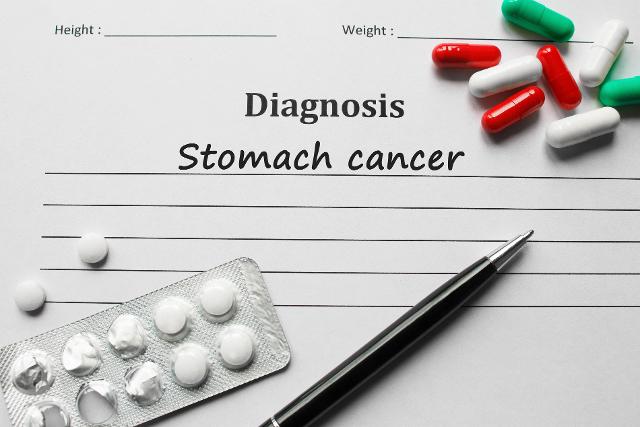 ROCKFORD - While breast, colon, and prostate cancers tend to get more media attention, stomach cancer is nothing to sleep on, either. November is Stomach Cancer Awareness Month.
ROCKFORD - While breast, colon, and prostate cancers tend to get more media attention, stomach cancer is nothing to sleep on, either. November is Stomach Cancer Awareness Month.
Stomach cancer, also known as gastric cancer, is the growth of cancer cells in the lining and wall of the stomach.
Get The Latest News!
Don't miss our top stories and need-to-know news everyday in your inbox.
The awareness month is important; despite any perceived obscurity, stomach cancer is one of the most common cancer types and one of the top causes of cancer deaths around the world.
“There are about 26,000 cases that occur in the United States a year and, unfortunately, about 11,000 deaths per year because of this," says Dr. Ismael Shaukat, an oncologist for OSF HealthCare. "And this accounts for about 1.5% of all cancers that we see.”
Risk factors for stomach cancer include:
- Age - most people are diagnosed with stomach cancer in their late 60s or older
- Sex – stomach cancer is more common in men than women
- Obesity – being overweight may increase the risk of stomach cancer
- Race – stomach cancer is more common in Hispanics, African Americans, and Asians
“The exact cause of stomach cancer is not known," says Dr. Shaukat. "But we think it’s due to certain reasons such as lifestyle – obesity, smoking, and drinking. These are some of the factors, and there are heredity reasons as well. There are families who have (a history of) breast cancer that can have stomach cancer as well due to certain mutations that occur in those situations.”
Stomach cancer symptoms aren’t always easily identified. Feeling bloated after eating, heartburn, and unintentional weight loss are just some signs of a potential problem.
“Sometimes the symptoms can be vague," says Dr. Shaukat. "They can be abdominal pain, nausea, vomiting, the inability to swallow, but you can also experience fatigue. That’s because you have what is called occult bleeding, meaning bleeding that occurs that we don’t see and that can lead to lower hemoglobin, which can lead to fatigue.”
If you experience any of these symptoms for more than two weeks, Dr. Shaukat stresses the importance of making an appointment with your primary care physician as soon as possible.
“Unfortunately, we don’t have screening like we do in colon cancer and breast cancer," says Dr. Shaukat. "But we can do certain things like lead a healthy lifestyle, diet modification, exercise, avoidance of a sedentary lifestyle, these are some of the things we can do to help prevent this from happening.”
While stomach cancer is still one of the most common and causes of cancer deaths around the world, the incidence rates have dropped about 1.5% every year in the last decade in the U.S. Part of the reason may be due to the use of infection-treating antibiotics, according to Cancer.Net.
Advances in treatment of stomach cancer, which include chemotherapy and surgery, have also made an impact as well, according to Dr. Shaukat.
“There have been some changes to the treatment of gastric cancer," says Dr. Shaukat. "There’s been changes in the modality of surgery, the type of regiments we use in chemotherapy, as well as radiation therapy. Also, there’s been a paradigm shift towards chemotherapy and surgery alone, but radiation therapy definitely plays a role in certain cases.”
For more information on stomach cancer, please visit OSF HealthCare.
More like this:
